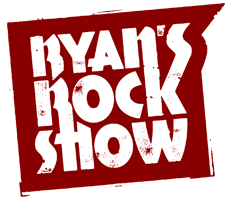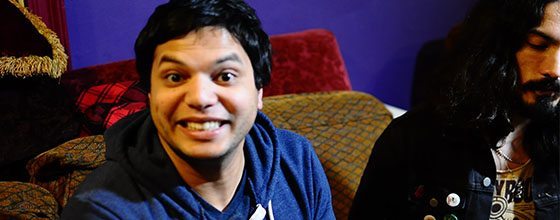During one of the only house shows Periphery ever played in their 10-year history, the floor of the place collapsed. That’s what Misha Mansoor told us after we wrapped up our interview in Hollywood. “It was the last house show we played,” he said looking curiously around the green room of House of Blues Sunset. “Is there food?” he asks a bandmate passing by.
You see, Mansoor has got a lot on his mind. Right now Periphery is in the middle of a huge North American tour with Nothing More, Wovenwar, and Thank You Scientist, and they’ve got a new record that just came out — two albums to be exact, that make up a dual concept opus dubbed Juggernaut: Alpha and Juggernaut: Omega.
And while their latest effort may see them at the peak of their career, Mansoor says everything happened slowly over time. Today we’ll talk to Misha about his beginnings as a 17-year-old in his bedroom in Maryland, whether or not drugs enable you to write better music, and what he wishes someone had told him when he was just starting out.
Key takeaways:
- Periphery’s first show ever was at the Brass Monkey in Baltimore. Misha was on drums because they couldn’t find a drummer. “It was better to play a show, even if it was in some weird format, than not play shows at all.”
- They toured with Deftones in 2013. If you had told his 13-year-old self that this tour was gonna happen, he wouldn’t have believed it.
- Looking back on Bulb and starting when he was 17, it feels like a different lifetime. “It’s almost like someone else’s story, a dream I’m looking into.”
- When Periphery started to pick up steam people thought they came out of nowhere. “There was no master plan, it was just fun.”
- It’s important to stay fluid and adapt to everything in life. For the band that means doing whatever they want, and not falling into the pressure of outside sources like label, management, fans, etc.
- Writing music while on drugs — “There’s a point where if you go past it you just want to play video games and eat pizza.”
- “I’m a terrible music fan,” he says. Though he’s always writing new stuff or doing production with other bands he doesn’t listen to much music.
- He says one of the biggest factors to success in life is the element of luck. It’s not the only factor, but it can’t be ignored. “It’s not what people want to hear, but I think it’s what they need to hear.”
- How does Misha define success on a personal level? Being able to rest on your laurels.
- One thing he wishes someone had told him when he was just starting out was to learn how to manage expectations.
Links from this interview:
If you’ve got feedback about this interview, what you liked about it or suggestions on how we could have done it better, we’d love to hear it. Send an email to ryan@ryansrockshow.com.

